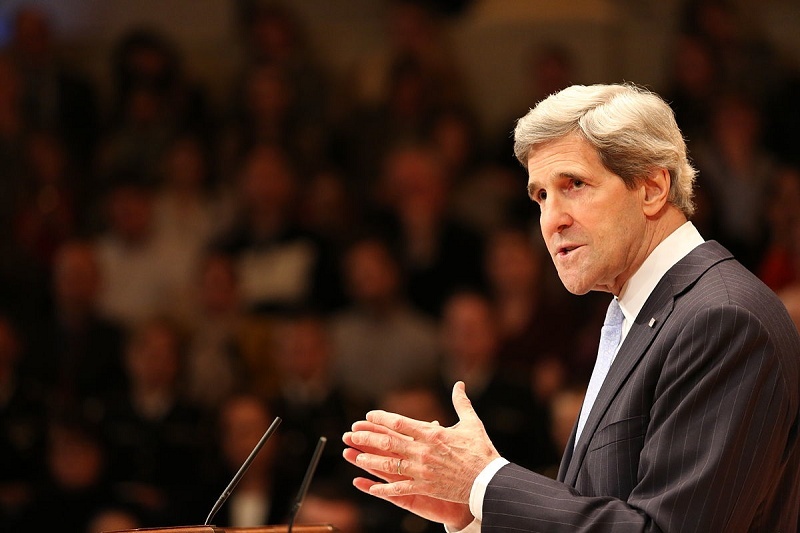
Secretary of State John Kerry released his department's International Religious Freedom Report for 2014 on Wednesday which studied nearly 200 countries and territories making it one of the most comprehensive accounts on global religious freedom violations.
The report centered on problematic patterns including global extremist violence, governmental religious violations, and societal religious hostility.
Kerry called non-state actors "today's principal persecutors and preventers of religious tolerance and practice" at a State Department news conference. He called out specific groups by name, including Islamic State, but referred to it as its Arabic name, Daesh, along with others like al-Qaeda, al-Shabab, and Boko Haram.
As ISIS and other extremists terror groups have been rising, hundreds of thousands of religious groups -- including Christians, Druze, and Muslims -- have had to flee from countries like Iraq and Syria.
In Nigeria and nearby countries, Boko Haram has killed more people in 2014 alone than it did in the last five years combined, deliberately targeting Christians, according to the report.
Additionally, in Pakistan, violent extremist groups have attacked numerous houses of worship, places of religious gathering and its leaders, resulting in hundreds of deaths.
The report found that these tensions were often left unaddressed, and even exacerbated by governments.
"Governments have the obligation to protect the human rights of all their citizens and should promote an environment of tolerance and non-discrimination"¦ it is the responsibility of governments to safeguard universal human rights and fundamental freedoms, including the right to life and the freedom of conscience, belief, practice, worship, and to explain and change one's faith," the report said.
In Nigeria, the government at state, federal, and local levels failed to enforce laws against abuses of religious freedom as security forces remain under resourced to combat Boko Haram militants.
Blasphemy laws -- such as those in Pakistan, Saudi Arabia, Egypt, and Sudan -- and other discriminatory regulations reveal the government's role in targeting religious minority groups. In Burma, the constitution states, "Every citizen is equally entitled to freedom of conscience and the right to freely profess and practice religion subject to public order, morality or health and to the other provisions of this Constitution." However, some ethnic groups like the Muslim Rohingya are not recognized as citizens under the law. Accordingly, the clause of protection and religious freedom does not apply to such groups, the report found.
During the press conference, Kerry closed with a reminder that no continent or country, including America, is free from religious bigotry.
"It may be expressed through anti-Semitism or prejudice against Muslims; through the persecution of Christians, Hindus, Buddhists, Sikhs, and others; or it may come in the guise of attacks against religion itself, as we saw so tragically in Oregon at the beginning of this month," Kerry stated.


















